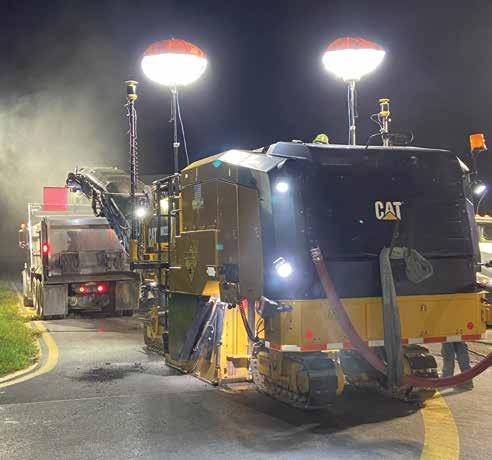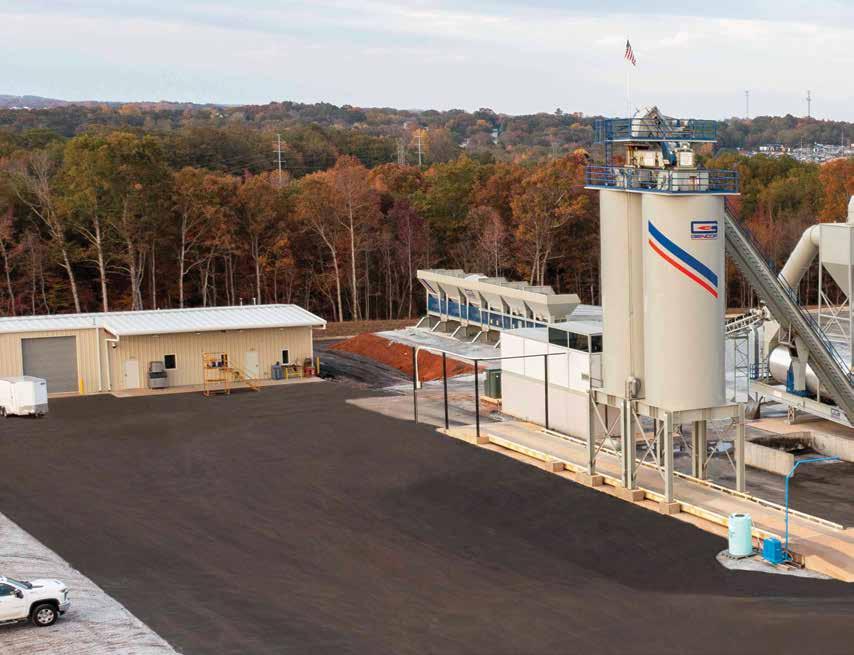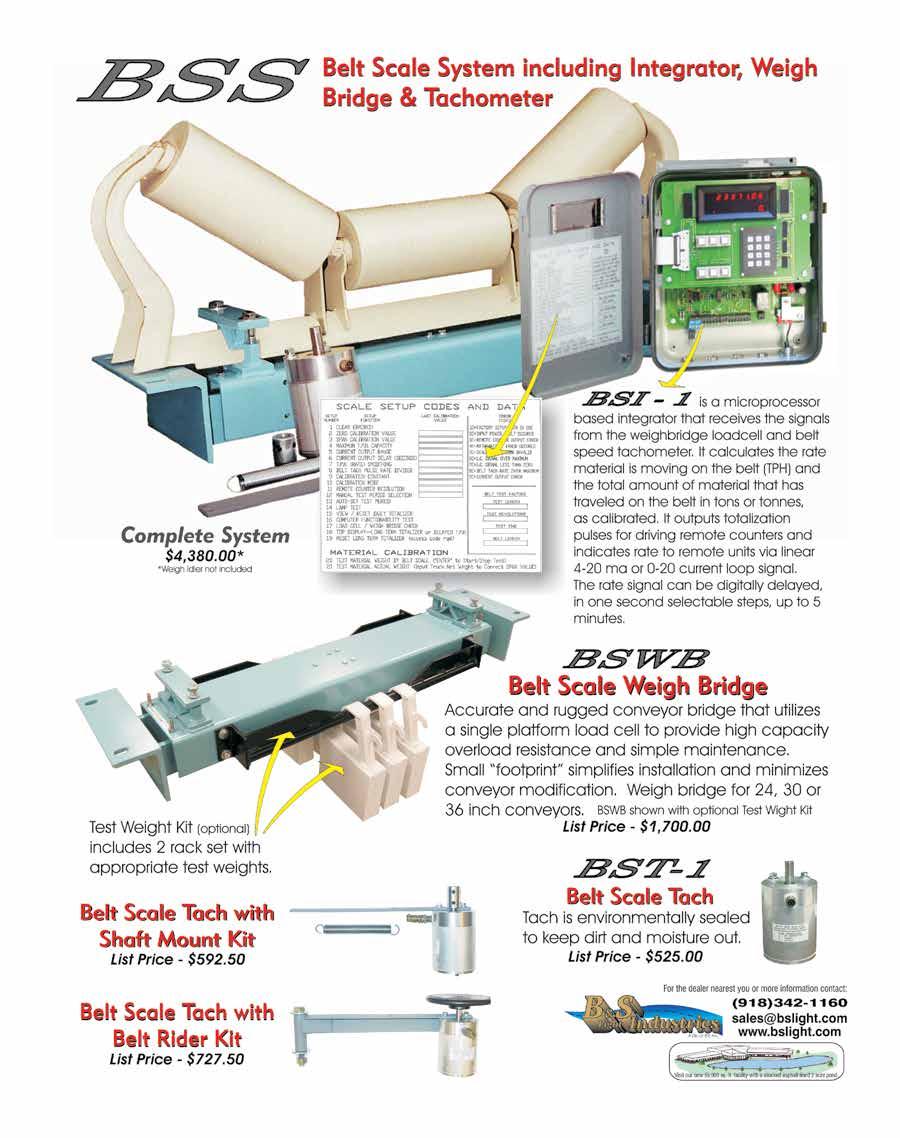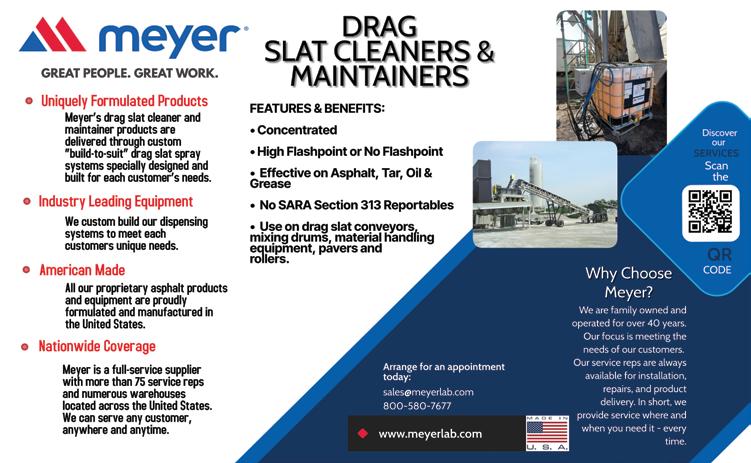
5 minute read
How to Find Your Next Paving Foreman
BY SANDY LENDER
While you can bring a novice into the asphalt industry to serve as a laborer on the crew—teaching him or her the ropes alongside veteran workers—you won’t hire an intern for the summer to be the crew’s foreman. That’s not a wise business move for a number of reasons. The foreman for a paving, maintenance, milling or other asphalt-related crew should come from the experienced crewmembers you have on hand.
That’s easier to type out for a how-to article than it is to put into practice, so let’s have the experts talk about it for a minute.
In today’s climate where skilled workers are worth their weight in gold, you may hesitate to move a skilled paver operator or excellent breakdown roller operator from their post into the foreman role. John Ball, the proprietor of Top Quality Paving & Training, Manchester, New Hampshire, shared that he was tasked with finding his successor when he wanted to move up to foreman when working at Pike Industries back in the day.
“I was running the paver and was ready for the next responsibility,” Ball said. “I asked [my boss] what I had to do to get that promotion. He told me to find my replacement first. So, I had to train the guy on the screed to take over running the paver before I could move up.”
Melissa (Missy) Paulus, the asphalt paving and equipment pool manager, Maintenance Operations Division for the Seattle Department of Transportation (SDOT), takes on the responsibility of building up the person who will fill in. For example, she mentored and promoted a senior raker on the paving crew to crew chief. That made him the boss and would have left a hole in the crew, but she hired another raker to succeed him.
“I like to mentor and help my employees grow in new directions,” Paulus said. “If I see an employee, and I believe they have other skill sets, I will mentor them to reach skills to fill upward mobility.” She then promotes the next person in line that has teachable skills to fill in for the dump guy or equipment operator she’s moved up.
More Than Paving Skill
There’s more to becoming a foreman than knowing how to operate equipment. Bryce Wuori, CEO of Pavewise, Bismarck, North Dakota, looks for a willingness to listen, the ability to be a leader, and effective communication skills in the person he’d promote into the foreman role, accentuating the worker’s understanding of the equipment the people on his crew are operating.
“I believe the paving foreman should concentrate on the paving equipment, crews and operations,” Wuori said. He shared that it can be a negative if the foreman “gets in the mix of running equipment too much.” This can be distracting. “They can lose concentration on the paving operations. If there is one specific tool they should understand, it should be the paver and screed.”
Randy Blount, the CFO of BuildWitt and formerly president of Blount Contracting, put a high degree of importance on personal accountability for the foreman he looks for in the company. You want a person who is accountable to themselves and their team, he said.
“When you move into a new role, you will certainly make mistakes and a good leader will own up to those mistakes and improve,” Blount said. “This leader’s example of accountability will help them as they hold their team members accountable.”
This will also be someone who “knows what they don’t know,” Blount continued. “I want someone that is humble enough to ask the crew or their boss for help or advice.”
Blount also looks for someone who concentrates on the people.
“People are what makes a crew. I want someone that understands it is not the equipment but the people that deliver safety, quality, production, etc. People want to know they matter and they contribute (are
Traits You’re Looking For
The next great paving foreman could be standing right in front of you. Our experts shared some of the traits they look for—although this isn’t an exhaustive list—in a person who would move up and take on more responsibility with the paving crew.
• Accountability
• Asphalt knowledge
• Communication
• Conflict-resolution skills
• Good attitude
• Leadership potential
• Open-mindedness (ability to change)
• Paving equipment knowledge

• Planning ability
• Respect for new guys & co-workers
• Willingness to teach (and learn) valued). I think the ideal leader has demonstrated that while on a crew.”


The experts in the field have seen their share of great foremen over the years.
“I’ve seen a lot of equipment operators work up the ranks to foreman and superintendent and one of the most important things they must do is communicate effectively and understand how to delegate tasks to others,” Wuori said. “It’s difficult to move operators into these positions when they are good at their jobs but if they are the leaders we expect them to be they will teach a new employee the ropes. Steve Haugen from Northern Improvement is one top notch supervisor and Jeff Momerak from Mayo Construction is another one that has worked his way up and is an amazing superintendent. Communication is key in these positions.”
“My foreman is Paul Pablo,” SDOT’s Paulus shared. “He is key to my success. He’s Mr. Organized. He plans down to the T.” She said Pablo always holds a pre-construction meeting with his senior rakers and is very knowledgeable about asphalt paving and all it entails. “I have also mentored him, so he now fills in for me as asphalt manager as well. It’s a big win to have that kind of employee trust and knowledge.”
Prepare Your Next Foreman For Success
Echoing the earlier example Paulus gave of promoting a senior raker, Blount’s advice suggests your next foreman could be anyone on the crew and it’s best to keep your eyes and mind open to the possibilities.

“I’m not sure promoting the best operator is a wise prerequisite,” Blount said. “Operating equipment is an incredible skill and some people that operate equipment have leadership characteristics and some don’t. I am looking for who is leading, teaching, putting the team first and learning from their mistakes. I would make sure everyone on the crew knows these are what you see as keys to moving into a leadership role. There might be a laborer doing all these things and I’m going to start having conversations with that person about how to develop them into a foreman.”
Blount reminded readers that a person can lead others without being a supervisor and shared: “If we are focused on build- ing more capable leaders in all levels of our company, then there will be more people who are able to take on a leadership role. As humans we want to win and often the reservation around additional responsibility is the fear of failure. Failure can look like: working so many hours that your family life suffers, your friends no longer want to talk or work with you because you don't treat them right as the ‘boss,’ the additional stress makes it hard to enjoy building, etc.
“Preparing people for this new role before they arrive is key. People can't show up to a marathon race without training and be successful. Why do we think we can promote someone into a leadership role without lots of preparation and expect them to be successful?”









